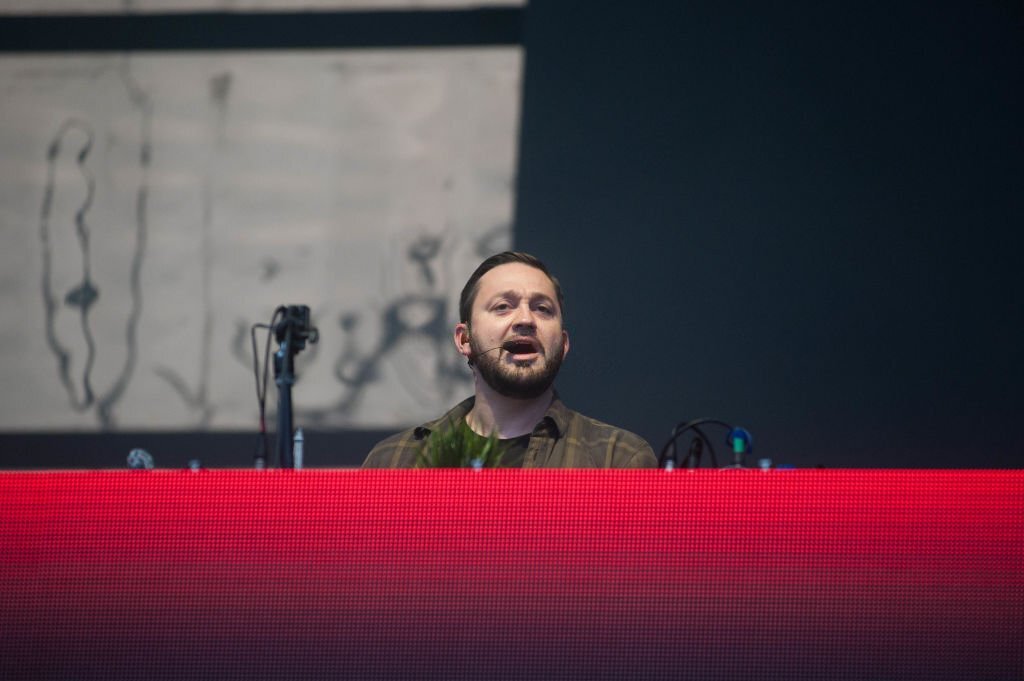Da quasi vent’anni, uno degli artisti più eclettici nella scena elettronica europea e non solo. Un passato importante con un archivio musicale pieno di brani che hanno cambiato il mondo di intendere questo genere -tanto nell’underground che nel mainstream.
Riuscire a rappresentare con credibilità il mondo della musica techno underground, quanto il mainstream, è qualcosa di riservato a pochi. Un solo nome: Fritz Kalkbrenner. Un artista con la “A” maiuscola, in cui la dimensione dei live, così come quella in studio, fanno parte di una unica grande bolla, in grado di esprimere una visione definita.
Una visione circolare in cui tradizione e ricerca – due poli apparentemente apposti – costituiscono gli estremi di un suono in costante evoluzione, in grado di oscillare fra questi. Da circa due decadi, il nome Fritz Kalkbrenner è sinonimo di qualità ed innovazione, anche in virtù di quanto abbiamo appena detto.
A tutto questo aggiungi un’esperienza (sconfinata!) nell’ambito della produzione e del music business. È importante avere una visione chiara di questo artista, perché solo così potrete comprendere l’importanza delle fotografia sullo stato di salute del mercato musicale, che è emersa da questa discussione.
Tra hip hop, soul, jazz e musica cinematografica abbiamo ripercorso una delle storie musicali più belle -ed appassionati- degli ultimi vent’anni. E farlo con Fritz Kalkbrenner è stato un onore che non ha prezzo.
Ciao Fritz, piacere di conoscerti. Benvenuto su Parkett! Conosco la tua musica dal 2010, quando ascoltai per la prima volta “Grove” e “Here Today Gone Tomorrow”. Oggi penso che quella canzone sia ancora fantastica così come l’intero progetto. Qual è il segreto per realizzare un album senza tempo?
Grazie per apprezzare ancora quell’album. “Qual è il segreto per realizzare un album senza tempo?” In realtà non lo so. Cerco solo di fare la musica nel miglior modo possibile. Penso che la musica abbia maggiori possibilità di essere “senza-tempo” se c’è il giusto atteggiamento.
Perché, per esempio, se pensi alla musica punk, le persone che apprezzavano molto quella cultura apprezzavano molto la musica. E se stai distribuendo quel tipo di musica a qualcuno che non ha nulla a che fare con la musica punk, chi ascolta non può davvero comprendere il piacere di quella musica per ovvie ragioni, sai. Ogni tipo di musica è radicata in una cultura o sottocultura, ed è forte. Deve essere forte.
Non c’è dubbio a riguardo. Ma se riesci a smorzare un po’ il tuo atteggiamento, e ti concentri su, diciamo, le armonie giuste che piacciono al pubblico, hai delle buone carte in questo gioco. Immagino che al giorno d’oggi avrei fatto l’album “Here Today Gone Tomorrow” in maniera molto diversa da allora. Personalmente ti direi che le mie capacità di produttore sono migliorate. Quindi, se avessi fatto quell’album, oggi, immagino che sarebbe stato molto meglio di quanto non fosse allora. Ma questa è solo la mia opinione.
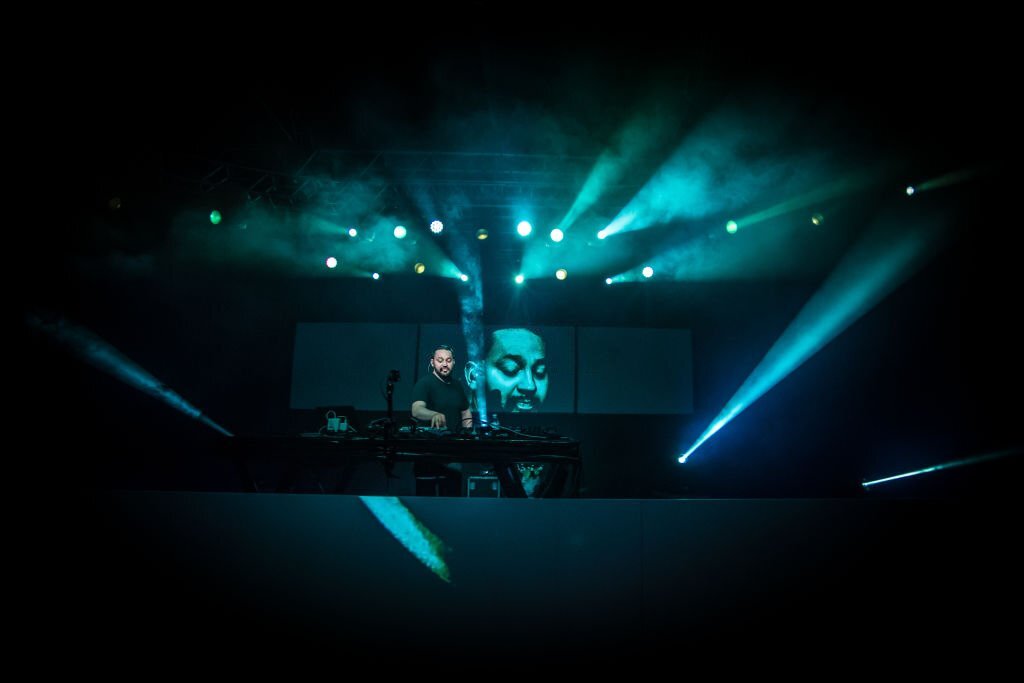
Il titolo “Here Today Gone Tomorrow” è ispirato al primo album di Ohio Player. Il singolo cantava qualcosa del tipo “Sono qui oggi, me ne sarò andato domani. Ogni volta che vai via lasci un po’ di dispiacere”. So che sei un musicista che si interroga sul ruolo della musica nella sua vita. Dopo tutti questi anni qual è il ruolo della musica nella tua vita?
Si, in effetti il ruolo della musica nella mia vita è cambiato. A volte ricordo di aver sentito Reakwon del Wu-Tang Clan dire che non ascolta affatto la musica hip hop, pur essendo un vero e proprio artista hip hop. Ascolta solo musica soul. E spiega che aveva amato l’hip hop così a fondo, aveva ascoltato così tanto e così intensamente quel tipo di musica che, un giorno o l’altro, non riesci più a provare piacere.
Devi cercare quel piacere da qualche altra parte. E poi è comunque qualcosa (si riferisce al particolare genere di musica a cui un artista è dedicato, ndr) che continui a fare. Quindi questo è un altro discorso. Ma devo ammettere che, dopo aver fatto musica per molto tempo (produco musica da quando avevo 17 anni. Ora ne ho 42, quindi sono un bel po’ di anni, ndi), sono abbastanza bravo a farlo e lo faccio al meglio.
Per esempio, quando è il momento di lavorare, di produrre un disco o anche solo di andare in studio, lo faccio subito. Nel frattempo, però, sono sempre abbastanza tranquillo: riesco a non pensare tanto alla musica, a non essere troppo occupato e a godermi, per esempio, i registi italiani di colonne sonore, come Stelvio Cipriani e simili. Riesco a rilassarmi.
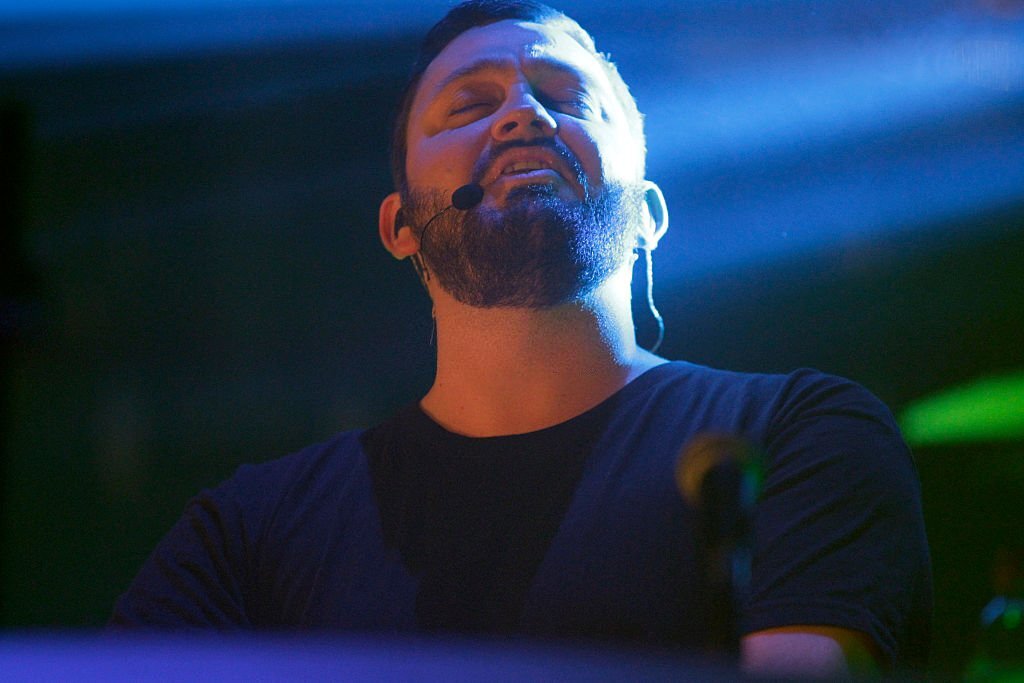
Interessante! A proposito.. Quali sono i tuoi riferimenti musicali? So che di solito ascolti musica hip hop e altri generi, ma non elettronica…
Sono cresciuto come ascoltatore di musica hip hop e di musica techno, quindi per me sono due facce della stessa medaglia. Ma nei miei ascolti c’è, come ho detto prima, un po’ di tutto: ci sono molti, molti altri generi che mi piacciono molto.
Dal soul al jazz, fino alle sonorità più recenti, ancora una volta, perché l’ho avuto 20 anni fa, anche questo; mi piacciono i registi italiani di colonne sonore di film come, ovviamente, Morricone, Stelvio Cipriani, Pia Picolini, eccetera. Loro mi piacciono molto per il tono e lo stile di composizione, semplice ma elegante. Mi piace molto, devo ammetterlo.
So che la componente visiva è molto importante nei tuoi spettacoli dal vivo. Hans Hofmann, pittore del secolo scorso, disse: “Nel contesto della natura, la luce fa il colore. Quando dipingiamo il colore crea luci”. Pensi che le luci possano dare una parte emotiva ai tuoi live?
Quando mi esibisco in uno spettacolo dal vivo o in un festival, ho un certo light jockey con me. È lui a creare quella luce (ride, ndr), quel tipo di tono, o a sostenere lo spettacolo in questa parte emotiva. Lui progetta per intero lo spettacolo con un certo concetto di luce. È un lavoro a tempo pieno.
Ed è importante, anche se il pubblico non ne è consapevole in prima persona. In quel momento sta canalizzando gran parte delle emozioni che accompagnano le immagini. I ragazzi che si occupano degli effetti visivi e di quelli delle luci lavorano in modo sinergico. E questo è un aspetto molto importante in uno spettacolo dal vivo.
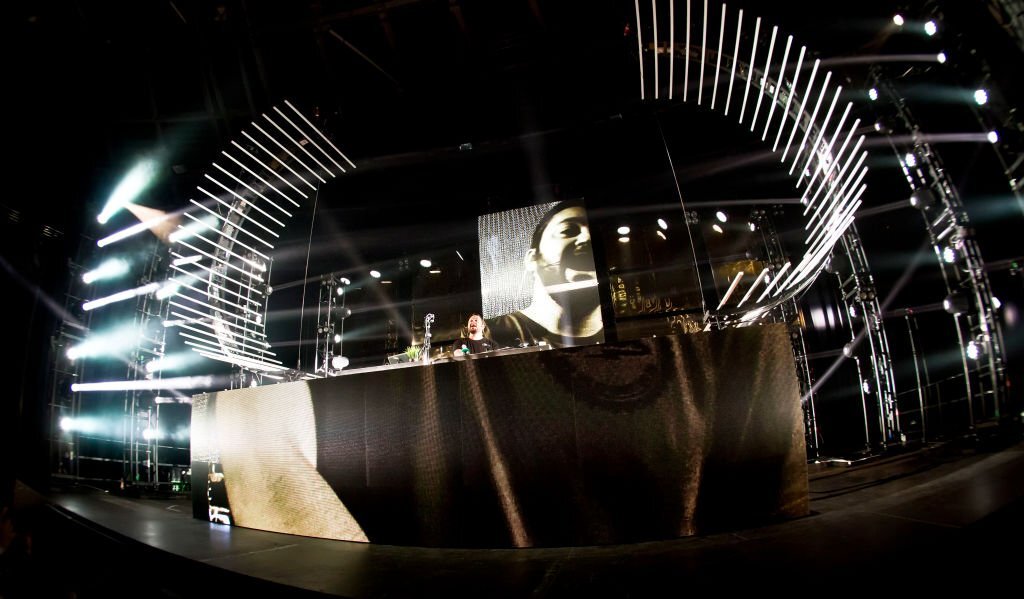
A proposito di colori, dobbiamo parlare del tuo ultimo album “True Colours ” (2020). Quando Goëthe o Freud parlavano di colori dicevano che ogni colore si riferisce a un’emozione. Qual è stata l’emozione che ti ha guidato durante l’intera produzione di “True Colours “?
Non si può attribuire la causa a un singolo evento o a una singola emozione. È un conglomerato di molte, molte cose che si uniscono. In alcuni brani ho collaborato con un mio caro amico, Ben Böhmer. Anche lui viene dalla Germania. È molto più giovane di me, credo di oltre 10 anni. Ma è un mago dei sintetizzatori, devo ammetterlo. Ha contribuito ad alcuni brani, che sono venuti davvero bene.
Nel frattempo, negli ultimi due o tre anni, lui stesso ha avuto un grande successo e sta facendo grandi concerti in tutta Europa e nel mondo. Sono molto contento e felice per lui. Nel processo di realizzazione dell’album, questa è stata per me la cosa più particolare della produzione dell’album.

Sei cresciuto a Berlino ed eri un adolescente negli anni ’90. Hai vissuto la caduta del muro. Cosa ricordi di quel periodo?
Sono cresciuto a Berlino ed ero un’adolescente negli anni Novanta. Ricordo molte cose di quel periodo. E d’altra parte, non ne ricordo altre. Ma questa è un’altra storia (ride,ndr). Ognuno di noi è in grado di raccontare una storia quando non è più giovane e ricorda quanto importanti, speciali e liberatori siano stati per lui quei giorni. E naturalmente io ho avuto un po’ di vantaggio, mettiamola così, perché Berlino era davvero speciale in quel caso particolare.
E naturalmente era un periodo spensierato per me: molte cose erano possibili. A volte, ricordo queste cose come un sogno, e sono passate via come un sogno. Sono semplicemente felice di averle vissute. Berlino è stata il centro nevralgico di molti, molti artisti di musica elettronica molto importanti. Ne sono stato testimone fin dal giorno-zero, mettiamola così. E sì, è stato un grande momento e come tutti i grandi momenti di crescita prima o poi passano. Come si dice, “This is what it is“.
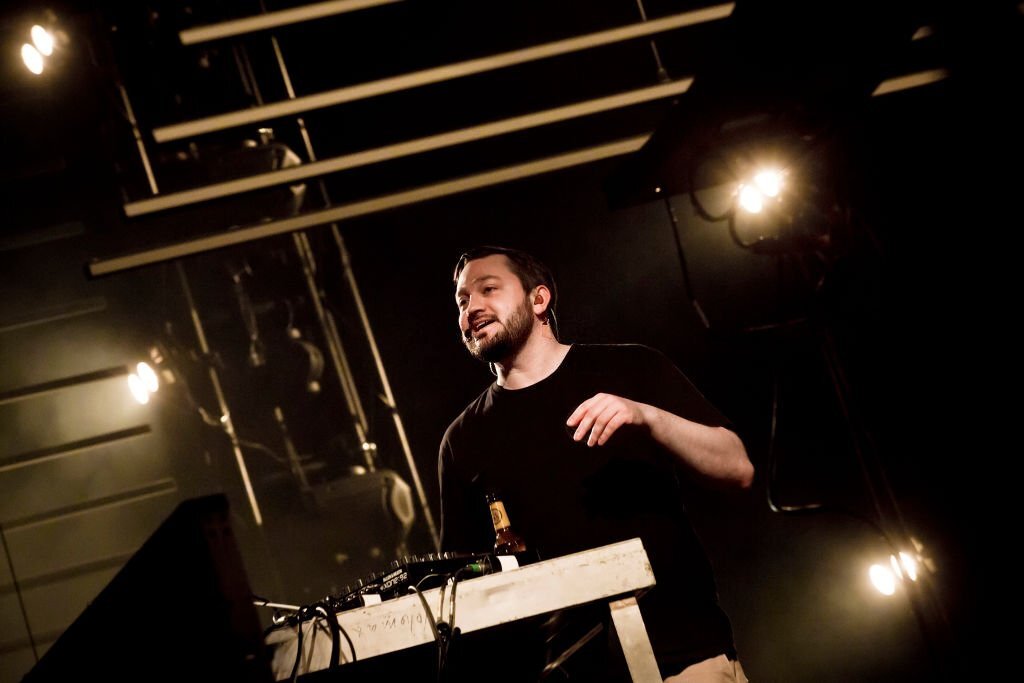
Un altro argomento importante è NASUA Music. È più di una semplice label per pubblicare la tua musica..
NASUA è in parte la mia label, ma devo ammettere che non mi piace definirla “label”. Tecnicamente è un’etichetta, ma preferisco il termine “piattaforma”: dà alle mie uscite quella certa cornice legale di cui ho bisogno.
Viviamo in questi tempi in cui un’etichetta non produce più alcun dato musicale fisico, il che è piuttosto triste per me, ma ehi, tutto passa nel tempo. Al giorno d’oggi è tutto in streaming e NASUA è sul pezzo. È attuale. Io sono in parte coinvolto in questa dinamica con la mia piattaforma mettiamola in questo modo, ma mi dà la cornice legale per pubblicare la mia musica.
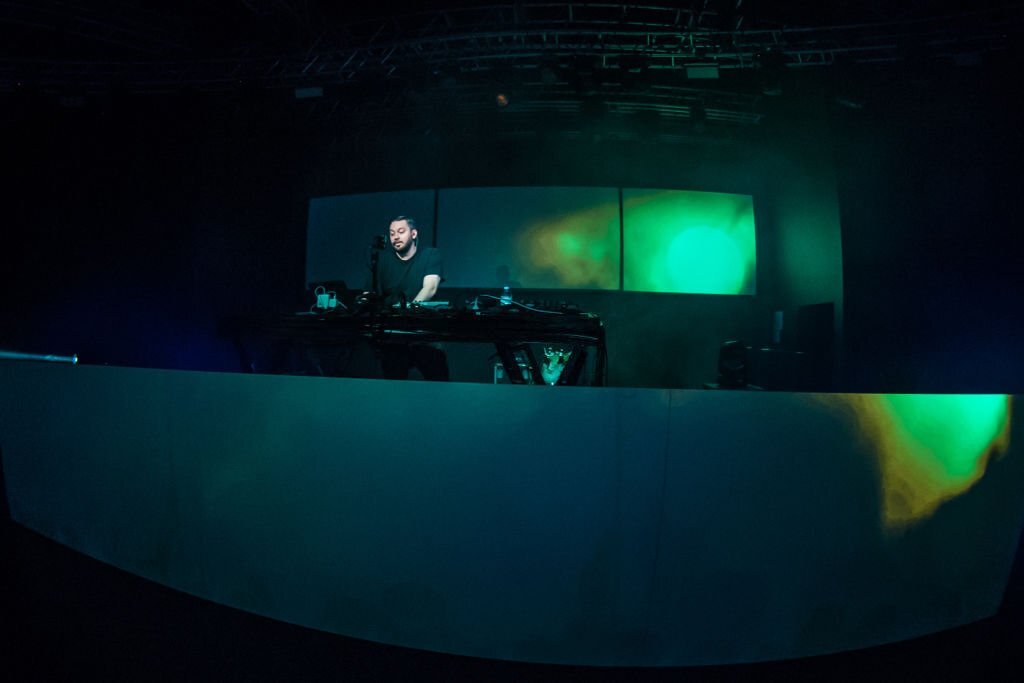
Dal 2010 hai pubblicato un album ufficiale ogni due anni. Hai pubblicato “True Colours” nel 2020. Quest’anno dovrebbe uscire un nuovo album: vuoi darci qualche anticipazione?
Si, l’album “True Colours” era del 2020. Se seguissimo il vecchio schema, un nuovo album dovrebbe essere in cantiere. Ma devo ammettere che al giorno d’oggi nel completo abbandono del formato fisico e la continua richiesta di nuova musica, diciamo, da parte del pubblico più giovane, è molto difficile lavorare ancora in modo redditizio su una cosa come un album, che ottiene l’attenzione promozionale per una settimana o giù di lì.
Sfortunatamente al giorno d’oggi non ha più senso lavorare per un anno e mezzo, o più, su qualcosa che attira l’attenzione per solo una settimana o, addirittura, un solo weekend. Al momento mi sto concentrando sui singoli, il che è anche divertente. Abbiamo alcuni singoli in cantiere che usciranno molto presto. Veramente molto belli.
Non sto anticipando molto, ma si, la conclusione è che in realtà non sto più lavorando a un album e mi sto concentrando di più sui singoli che usciranno quest’anno.
Grazie Fritz per la bella chiacchierata!
Grazie a voi!

ENGLISH VERSION
Hello Fritz, nice to meet you. Welcome to Parkett Channel! I listen to your music since 2010, when I listen to “Grove” and “Here Today Gone Tomorrow”. Today I think that song is still amazing and the album is too. What is the secret to making a timeless album? Do you think “Here Today Gone Tomorrow” could be better (or different) if it was produced by yourself today?
Thank you for saying that you still like the album. What the secret is to make a timeless album? I actually do not know. I just try to do the music as best as I can. I think music has a better chance to be timeless if there is not so much, I can say it, attitude into that.
Because for example, if you think of punk music, people in that time who enjoyed the culture very much, enjoyed the music very much. And if you’re handing out that kind of music to someone who does not have to do anything with punk music, he cannot really share the enjoyment of that music for obvious reasons, you know.
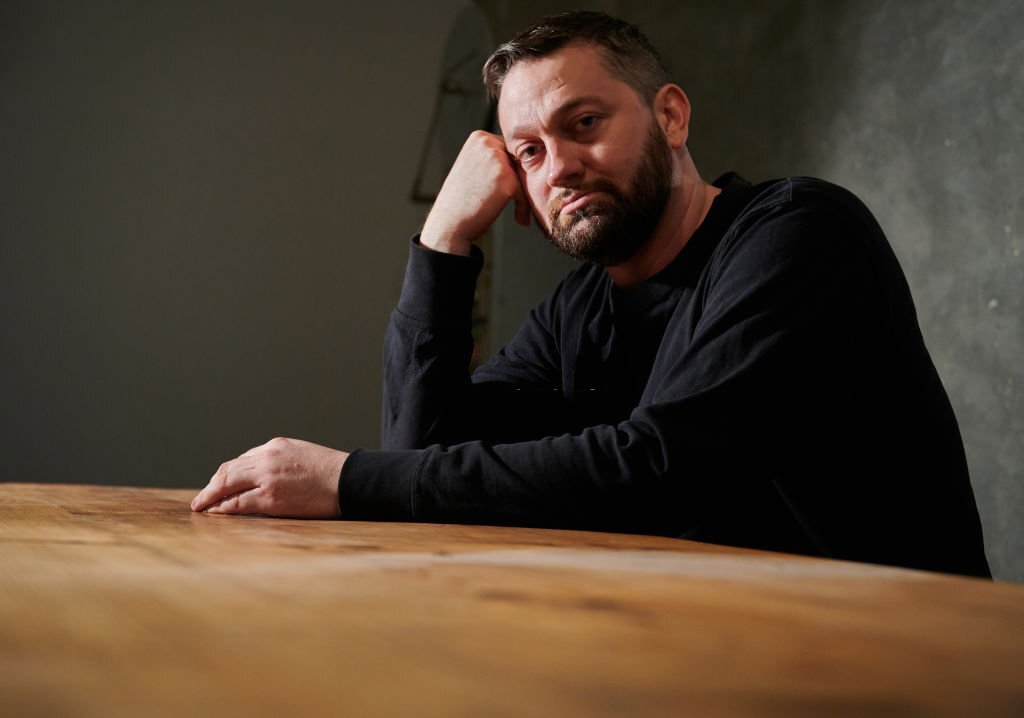
Every kind of music is rooted in some a culture or a subculture, and it is strong. It needs to be. There is no question about it. But if you can tone back the attitude a bit, and if you’re focusing on, yeah, let’s say, harmonics in the way humans enjoy them, you got pretty good cards in the game.
I guess nowadays I would have done the album “Here Today Gone Tomorrow” quite different from that. I personally would say my producer abilities have improved. So if I would have done that album today, I guess it would be much better than it was way back then. But that’s just my opinion.
The title “Here Today Gone Tomorrow” was inspired by Ohio Player’s first album. It said something like “Here today, gone tomorrow. every time you leave, you leave a little sorrow”. I know you are a musician who questions the role of music in his life. So.. After all these years as producer, DJ and musician what is the role of music in your whole life?
Yes, indeed, the role of music in my life has changed. Sometimes I remember hearing Reakwon from the Wu-Tang Clan saying once that he had that he is not listening to hip hop music at all, even though he is a veritable hip hop artist. He’s only listening to soul music.
And he explained with that that he had loved hip hop to death, meaning having listened to so much and so intensely and so extensively of that kind of music that on one day or the other, you’re not really can take the enjoyment out of that anymore.
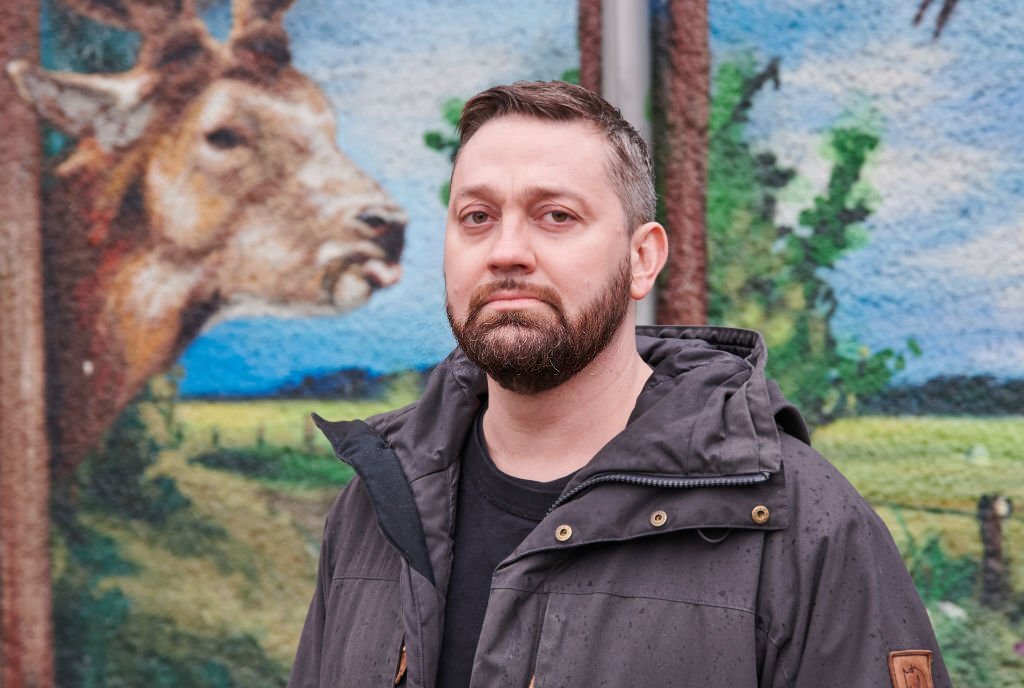
And you have to see for that enjoyment somewhere else. And then it is still something that you do. So that’s on another card. But I have to admit, after doing music for a very long time (I’m producing music since I was 17. I’m 42 now, so that’s quite a few years), I’m pretty much good in doing it on top. For example, when it is now time to do, to produce a record or let’s say to go into the studio, it goes right away.
But in the meantime, I’m pretty good if laying low, not thinking so much about music, not being so much occupied and just, I don’t know, enjoying, for example, Italian movie score directors, Stelvio Cipriani and such, and laying back.
In these days I found out also David Bowie titled the track “Here Today Gone Tomorrow”. It’s incredible! I mean David Bowie and you lived in two different historical periods, but the communication needs were the same. What are your musical references? I know you usually listen to hip-hop music and other genres, but not electro…
I grew up pretty much as a hip hop music listener as well as techno music, so there were two sides of one coin for me. But there is, like I said before, a little bit, there are many, many other genres that I enjoy pretty much.
And that goes from soul to jazz to recently, again, because I had that 20 years ago, I had that as well; Italian movie score directors like, of course, the obviously Morricone, Stelvio Cipriani, Pia Picolini, and stuff and so on, which I pretty much like because of their slick tone and their, let’s say, simple yet elegant composition. I enjoy that very much, I have to admit.
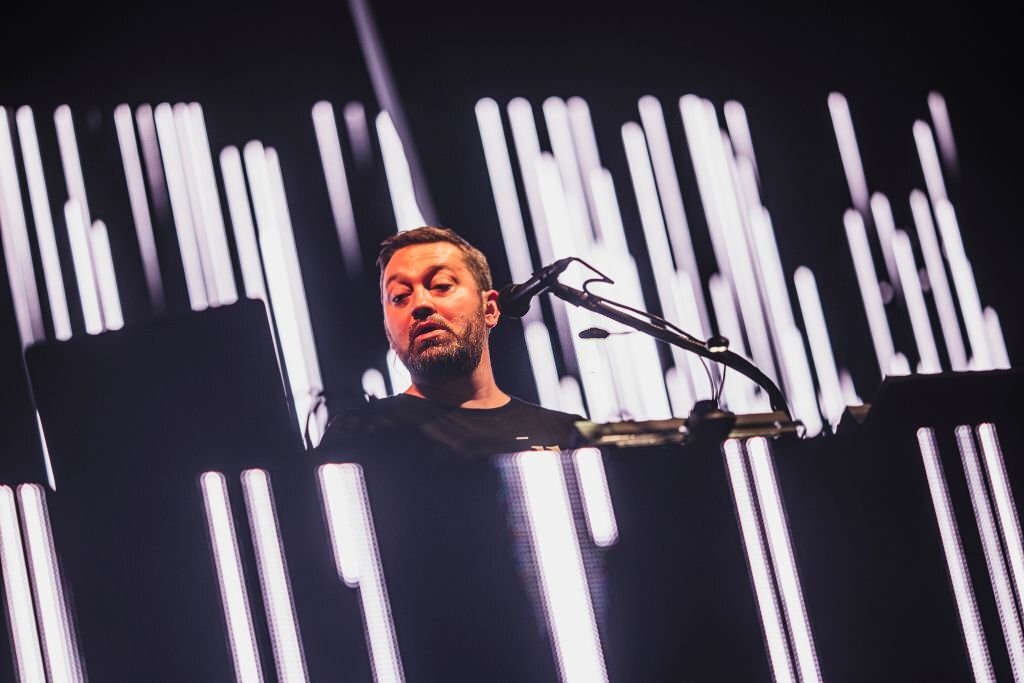
I know the visual component is very important in your live show. Hans Hofmann who is a painter of the last century said: “In nature contest, light makes color. When we are painting, color makes lights”. Do you think lights could give an emotional part at your shows? How important was a light show during your set?
When I perform a live show or a festival show, I do have a certain light jockey with me. So he is creating that light wise (he smiles, ndr), that kind certain tone, or he’s supporting the show in this emotional part very much. And he is actually is my light jokey, he is actually designing for the whole show a certain light concept in that way. So it is a full time job to do that.
And it is of importance, even though the audience is not really firsthand aware of it. But it is transporting very much of the emotions that goes along for the visuals as well. The visual guys and the light guys, they go hand in hand, of course. So that is goes a very long way on a live show. Yes, I have to admit that.
Speaking about colors, we have to talk about your last album “True Colours” (2020). Reading very every title and listening to every song I thought about color. When Goëthe or Freud spoke about colors they told every color refers to an emotion. What was the emotion behind during the production of “True Colours”? Was there a particular moment that you remember during the making of the album?
You cannot pinpoint it on one single event or emotion in that way. That is a conglomerate of many, many things that come together. On a few tracks, I collaborated with a good friend of mine, Ben Böhmer. He’s from Germany as well. He is quite younger than me, I think, 10 years plus. But he is, synthesizer wizard, I have to admit that. He contributed on a few tracks, which turned out really great.
In the meantime, in the last two to three years, he himself had an immense buzz and he’s playing great shows all over Europe and the world. I’m very glad and happy for him. In that album process, that was the most particular special thing on the album production for me.

You grew up in Berlin and you were a teenager in the 90s. You lived the fall of the Berlin wall. What did you remember about that period? Is there a song you associate with that time?
I did grow up in Berlin and I was a teenager in the 90s. I remember a lot of things out of the time. And on the other hand, I do not remember a lot of things out of that time. But that’s another story. Everyone is able to tell a story when he isn’t young anymore and he remember when he was young how important and special and freeing these days felt for him. I got a little bit of a head start, let’s put it this way, because Berlin was kind of really special in that particular case.
And of course, it was a carefree time for me, I have to admit that. And many things were possible. I remember these things sometimes like a dream, and they passed by like a dream. And I’m simply glad that I have experienced that. Berlin was the core grounding chambers of many, many very important electronic musical artists.
I had witnessed it from day one. one, let’s put it this way. And yeah, it was a great time and all growth great times goes by sometimes. That is what it is.
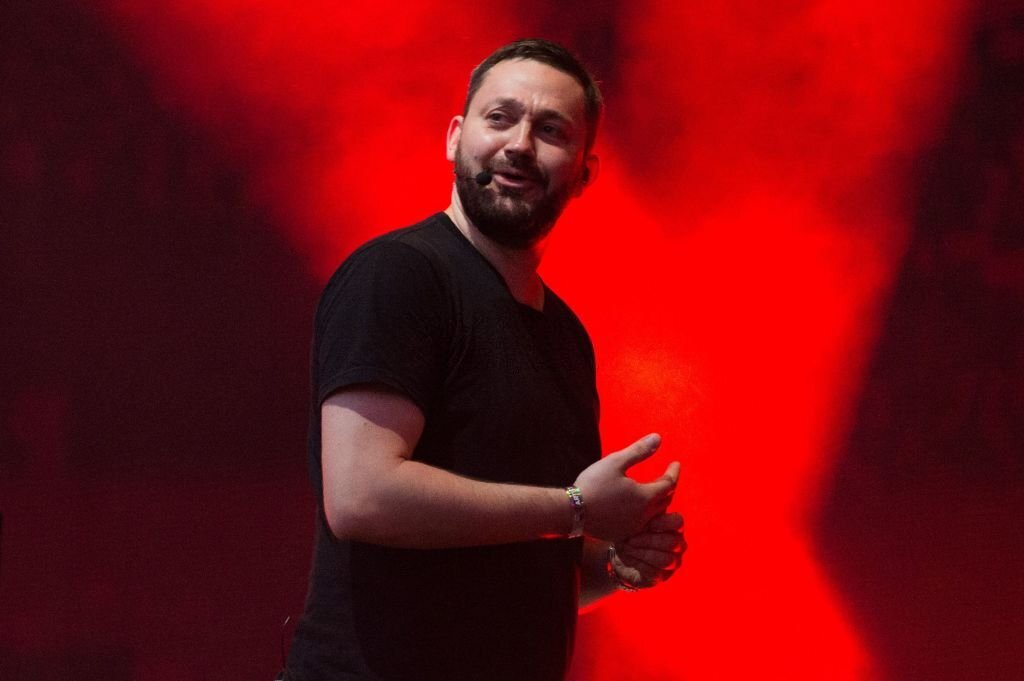
We talked about your past, your projects, and your musical taste. But another important topic is Nasua Music. It is more than a simple platform to release your music. Would you like to talk about it? Why Nasua Music is different from the rest?
NASUA is partly my label, but I to have admit I don’t like to define it “label”. Technically it is a label, but I prefer the term “platform” more than that because nowadays my releases gives the certain legal frame that I simply still need.
We do live in these times where a label does not produce any physical musical data any more, which is kind of sad to me, but hey, everything goes by in time, so it is all over streaming nowadays and so NASUA is here.
I’m partly involved in that in my very own platform, let’s put it this way and it gives me the legal frame to release my music.
Since 2010 you released an official album every two years. You published “True Colours” in 2020. A new album should be released this year: do you want to give us some anticipations?
Yes, “True Colours” album was 2020. Yeah. If we would follow the old scheme, a new album would have to be in the pipeline. But I have to admit it that in these nowadays and in the completely shift of no more physical data and the abundance of a need of, let’s say, album for the younger audiences makes it very hard for me to still work profitable on a thing like an album, which then afterwards does get like a promotional or a release attention of a week or so.
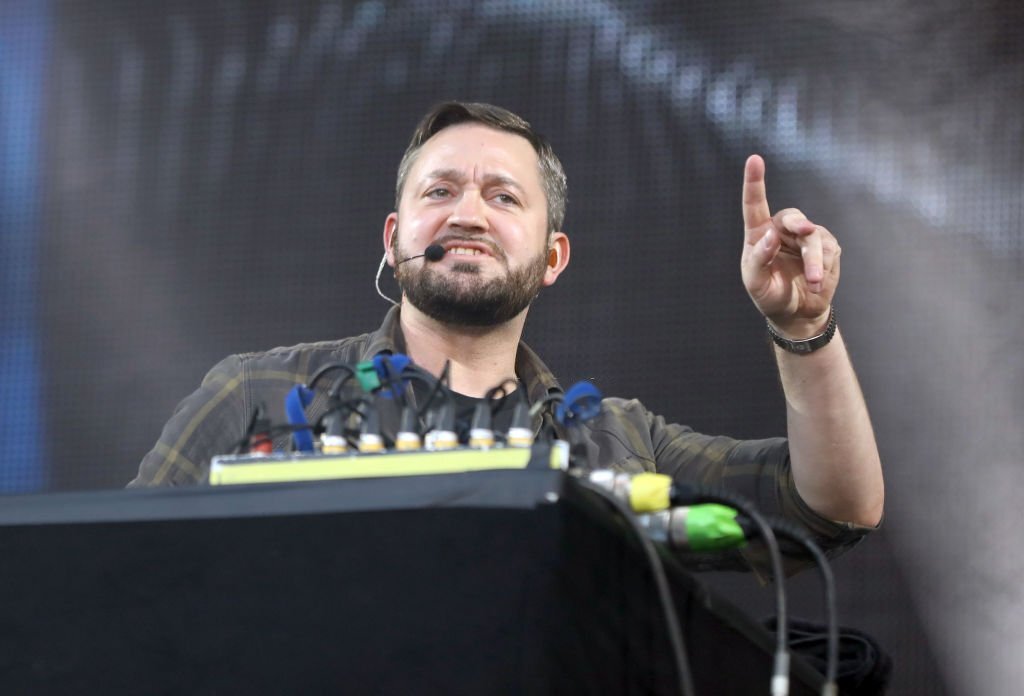
And unfortunately, nowadays it does not really make sense anymore to work like a year and a half or something that gets the attention of a week or a weekend a half. So, in the moment, I’m pretty much focusing on singles in that way, which is fun as well.
So, we have a few singles in the pipeline which are coming out quite soon. Very great ones. I’m not telling too much in advance, but yeah, so bottom line is I’m actually not working on an album any more and more focusing on singles which are coming out a lot this year 2023.
Fritz, Thank you for the great interview!
Thanks to you!
